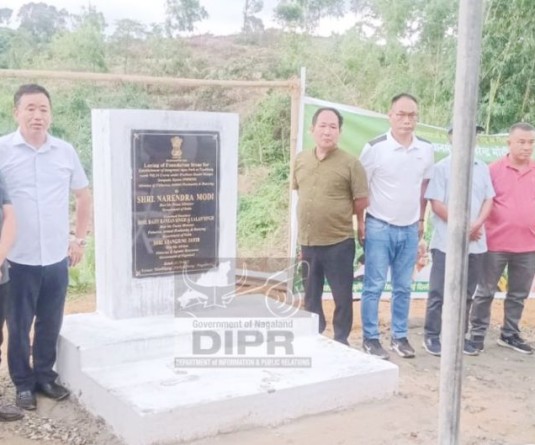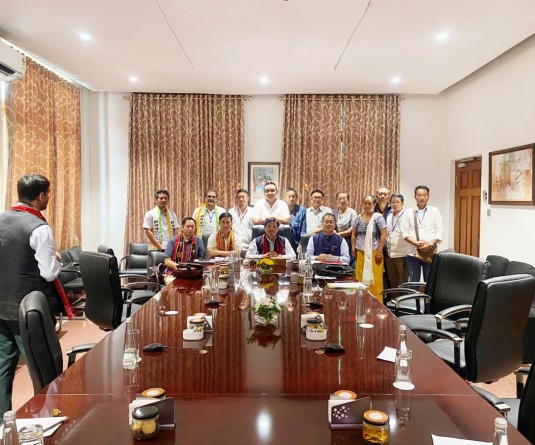
Morung Express News
Dimapur | December 19
The Forum for Naga Reconciliation with the support of 26 Naga organisations made a public declaration on December 19 calling on the Government of India (GoI) to act responsibly to ensure justice for the victims of Oting and Mon killings.
“We, the Public have come together under the theme Memories of Oting and the Nagas organised by the Forum for Naga Reconciliation on December 19, 2021 to stand in absolute solidarity with Oting Village and the Konyak Naga People,” the declaration stated.
In the declaration read out by FNR Convenor Rev Dr Wati Aier during a programme at the Christian Higher Secondary School Auditorium, Dimapur, the public expressed outrage at the “obvious intention of the senseless and arbitrary killings of innocent Naga civilians committed by India’s 21st Para Special Forces Regiment.”
“Considering this violation of the right to life constitutes the gravest infringement of human dignity and human worth, we insist the Government of India to act responsibly by immediately removing and repealing the Armed Forces Special Powers Act of 1958, ensuring justice for the victims of Oting and Mon killings,” the declaration stated.
It called on the GoI to initiate appropriate disciplinary action against the Commanding Officer and personnel of the 21st Para Special Forces Regiment involved in the killings of 13 civilians and injuring at least 14 civilians in Oting on December 4, according to the rule of law, as well as disciplinary action against the Commanding Officer and personnel of the 27th Assam Rifles involved in the shooting that killed 1 civilian and injured at least 18 civilians in Mon Town on December 5.
An opportunity to self-reflect
The declaration stated that the tragedies in Oting and Mon present an opportunity for Nagas to self-reflect and discern together “so that our present crisis can be publicly redressed.”
In this regard, it implored the Naga Political Groups to shed their differences and take positive steps to reconcile, unite in purpose and cooperate in the common interest of the shared Naga historical and political rights.
It also asserted that it was a time for “All Naga leaders – overground and underground – to rise above party politics and self-interests by demonstrating statesmanship and healing leadership using nonviolent means,” and for the Naga public to hold their leaders and themselves accountable, and resist all forms of tribalism and other forms of isms which divide the Nagas.





